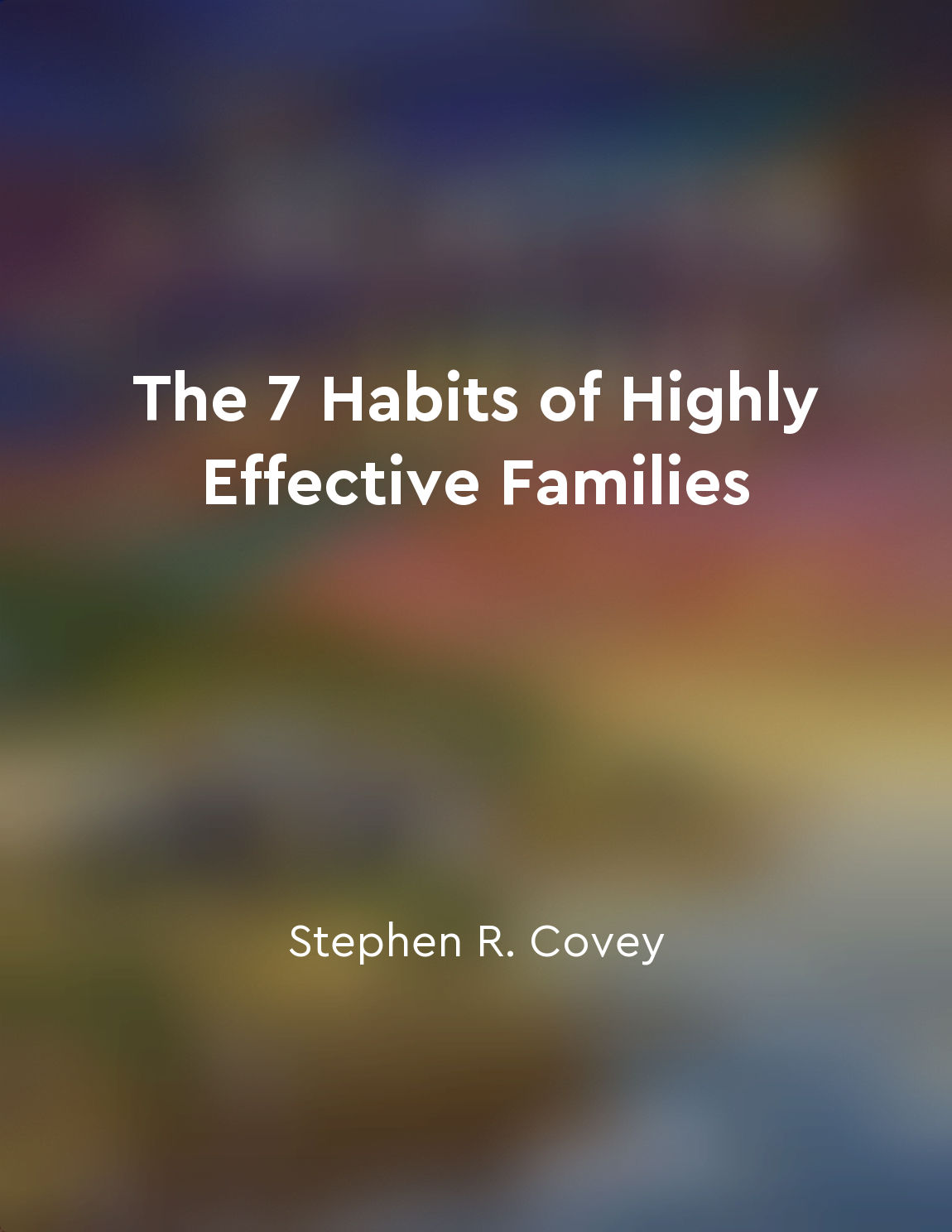Avoiding competition among siblings can foster better relationships from "summary" of Siblings Without Rivalry by Adele Faber,Elaine Mazlish
When siblings are constantly pitted against each other in a competition for attention, affection, or resources, it can create a toxic environment that breeds resentment, jealousy, and hostility. This competitive mindset can lead to a breakdown in communication, trust, and ultimately, the sibling relationship itself. By avoiding direct comparisons between siblings and instead focusing on their individual strengths, interests, and accomplishments, parents can help foster a sense of uniqueness and value in each child. When children feel secure in their own identity and worth, they are less likely to view their siblings as rivals or threats. Encouraging cooperation and collaboration rather than competition can also help siblings develop strong bonds and positive interactions with each other. When children work together towards a common goal, they learn to appreciate each other's contributions and strengths, leading to a sense of camaraderie and mutual respect. Furthermore, teaching siblings to communicate openly and honestly with each other can help prevent misunderstandings and conflicts from escalating. By encouraging children to express their feelings and needs in a constructive manner, parents can promote empathy, understanding, and compromise within the sibling relationship. It is important for parents to model positive behavior and conflict resolution skills for their children. By demonstrating respectful communication, active listening, and problem-solving strategies, parents can help siblings learn how to navigate disagreements and differences in a healthy and productive way.- By creating an environment that values and celebrates each child's individuality, promotes cooperation over competition, encourages open communication, and models positive behavior, parents can help siblings develop strong, trusting, and supportive relationships with each other.
Similar Posts
Love is a mysterious force that binds us together
Love, that inexplicable force that seems to hold us in its grasp, is a powerful and mysterious phenomenon that defies explanati...

Focus on progress, not perfection
In the world of parenting, it's easy to get caught up in the idea of perfection. We want our children to be flawless, to excel ...

Trust your instincts as a parent
Trust your instincts as a parent. You are the expert on your own child. You know your child better than anyone else. No one els...
Show genuine interest in their interests
When we take the time to show genuine interest in our teens' interests, we are sending them a powerful message. We are telling ...
Global perspective
Having a global perspective means seeing things from a wide-angle lens, considering all angles and viewpoints before forming an...
Identity exploration is a key task in adolescence
During adolescence, individuals go through a period of intense self-exploration and reflection. This is a pivotal time in their...
Encouraging siblings to communicate openly and honestly can prevent misunderstandings
When siblings communicate openly and honestly with each other, they can avoid misunderstandings that often arise from lack of c...

Encourage cooperation instead of obedience
When we focus on encouraging cooperation rather than demanding obedience, we are shifting the dynamic of our interactions with ...

Foster a strong family identity
One of the key elements in building a highly effective family is to establish a strong sense of identity within the family unit...
Parents need to acknowledge and validate each child's feelings
When children express their emotions, whether positive or negative, it's important for parents to listen and understand. Each c...

